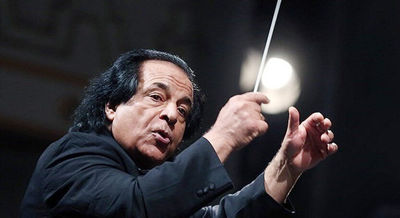The piece has been commissioned by Naxos Records, a Hong Kong-based German record label specializing in classical music.
Naxos Records has so far released three volumes of Rahbari’s album, “My Mother Persia”.
The China NCPA Orchestra plans to celebrate 50 years of diplomatic relations between Iran and China by performing two symphonic poems from the album in two concerts during July.
Goethe wrote the West-East Divan between 1814 and 1819 under the influence of Hafez’s poetry.
The collection marks a literary encounter between German and Persian literature which began in 1814. In the spring of that year, Goethe received a German translation of Hafez’s divan in two volumes from the publisher Cotta of Stuttgart.
The translator was the Austrian Orientalist Joseph von Hammer-Purgstall, whose translations and commentaries played a major role in acquainting Germans with the East.
Hammer’s translation of the divan broadened and expanded the knowledge of the Orient which Goethe had acquired in his youth, so that he could now, at the age of 65, devote himself more intensively to the East, and predominantly to Persia.
“In fact, Hammer-Purgstall built a bridge between Goethe and Hafez,” Iranian scholar Kurosh Kamali Sarvestani once said.
The connection between Goethe and Hafez has always been a source of inspiration for other art productions.
Iranian filmmaker Farshad Fereshteh-Hekmat made the docufiction “Hafez and Goethe” in 2018 to shed light on Goethe’s great inspiration from Hafez.
Source:Tehran Times

